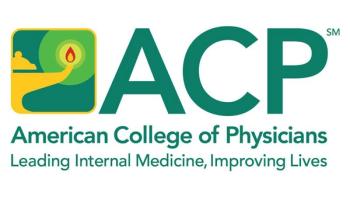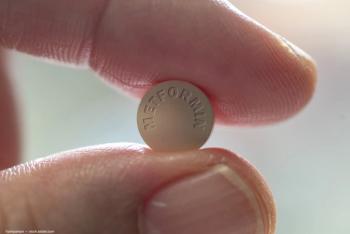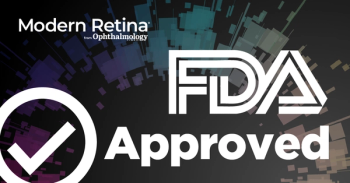
Q&A: Andrew G. Lee, MD, shares what every retina specialist should know about neuro-ophthalmology
Andrew G. Lee, MD, shares essential insights on neuro-ophthalmology for retina specialists, emphasizing diagnosis techniques and collaboration with neuro-ops.
As part of the 2025 American Society of Retina Specialists annual meeting, Andrew G. Lee, MD, was invited to give a talk titled "What Every Retina Doctor Needs to Know About Neuro-ophthalmology." Following his presentation, Modern Retina had the chance to speak with Lee about what he shared and the field of neuro-ophthalmology.
Note: The following conversation has been lightly edited for clarity.
Modern Retina: We were invited to give a talk here at ASRS about what every retina doctor needs to know about neuro-ophthalmology. Can you provide some highlights from that talk?
Andrew G. Lee, MD: Sure, what every retina doctor needs to know about neuro-ophthalmology is, ironically, when it's not the retina. The super power that we emphasize today was swinging a flashlight looking for a relative afferent pupillary defect [RAPD], and so when the patient sees nothing and the doctor sees nothing in the retina, that's actually neuro-op, and that is what we emphasize today. It's when it's not the retina that is a super important, super power, detecting the RAPD, and that person needs a neuro-op workup.
MR: Can you highlight what it's like to work with a neuro-op for these doctors when they should call in, or obviously, it's a much smaller specialty even than retina, so how can someone get in touch with a neuro-op if they don't have a connection any of kind?
Lee: So the neuro-ophthalmologist community is quite small, and it's a demand specialty, and we don't have neuro-ops in every city. A lot of times, we're serving in a consulting role and helping retina docs and community docs and comprehensive ophthalmologists to know what to do, even if we're not seeing the patient. You should definitely engage with and try and have a neuro-ophthalmologist help you walk through a case, even if they're not going to see it, because the next available neuro-op appointment is usually 3 to 6 months away. If, however, it's an emergency problem, that person should go to the hospital. You still need to call your neuro-op, but the way to get a neuro-op consult is at the hospital. Somebody is going to see them on call. Neurology is going to see them. They're going to have the MRI. The hospital is going to admit them. So that's actually the fast track to getting a neuro-ophthalmologist, if it's an emergency, is admit, but all the other neuro-ops, you should use your neuro-op locally in a consulting role, and the amazing thing about the internet now is you don't actually have to be in the same city or even in the same country. You can access neuro-ops remotely anywhere in the world now.
MR: As a neuro-op, what is the most common question you get, and how do you answer that?
Lee: The most common question that we get in neuro-op is, "Should we scan this person?" The answer is, if it's an optic neuropathy or a cranial neuropathy, or it's something that could be intracranial or intraorbital, you definitely need to scan the person. So "where is the lesion?" is a much more important question than "what is the lesion?" The MR will tell you what it is. It's your job as a clinician to determine whether it is the eye, in the orbit, or in the brain. If it's in the brain or the orbit that needs a scan, and that scan has a name: MR, head, orbit, gadolinium fat-sat, MR, head, orbit, gadolinium fat-sat. That is the most common question that we receive in neuro-op.
MR: From a technology standpoint, what do you think are the most powerful tools when it comes to diagnosing and managing conditions that might align with a neuro-op? Is it that flashlight test? What technology do you see as being crucial?
Lee: We have a lot of low-tech things like the flashlight, where we're just swinging that light to look for the relative afferent pupillary effect, the RAPD, and that hasn't changed since the 1800s. What's changed is OCT has completely changed the landscape on "is it the retina or is it the optic nerve?" Optical coherence tomography (OCT) sees better than me. It sees better than you. It sees better than any person who's ever lived because it sees to the micron level. So having an OCT in the macula and an OCT of the optic nerve has been a game changer on is it neuro-op: yes or no, and that is part of what we talked about today at the lecture.
To hear more from Andrew G. Lee, MD, or to learn more about neuro-ophthalmology cases, watch his series,
Newsletter
Keep your retina practice on the forefront—subscribe for expert analysis and emerging trends in retinal disease management.




























